The Old Quarter in Hanoi is an intriguing neighbourhood, home to a mix of Vietnamese architecture, green spaces, ancient shops and fresh-as-it-gets street food — all of it easily explored on foot.
At first look, these 36 streets can feel frenetic. Don't worry: Constant motion is part of the Old Quarter's charm. Grab a seat at a cafe and enjoy the action from a safe distance. You'll notice bicycle vendors selling fresh flowers and ripe fruit, old friends gathering for games of checkers, and cooks doing a roaring trade in steaming phở and bún chả. The longer you wander, the more you’ll be rewarded with moments in hidden alleyways, secluded pagodas, and cosy coffee shops.
Here are some of the best ways to appreciate the Old Quarter’s lively atmosphere and secret spots.
Discover ancient streets
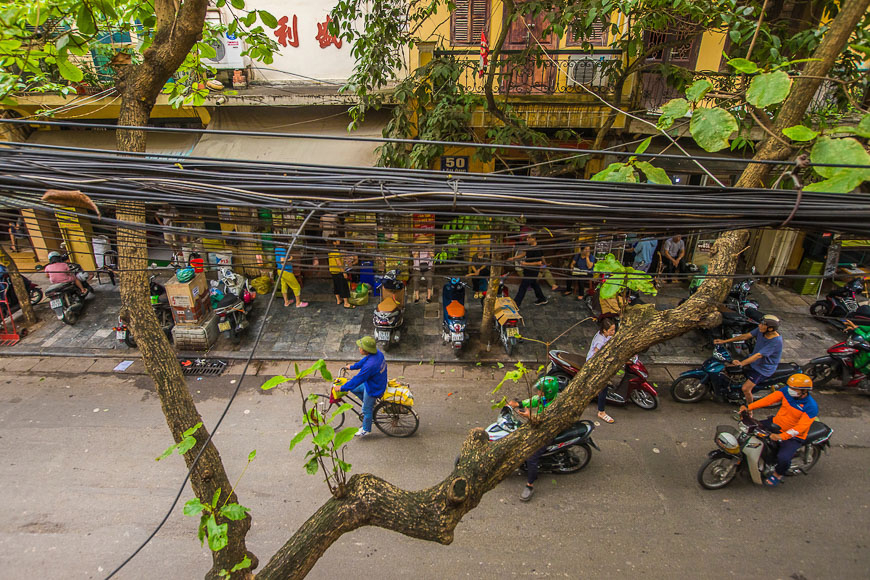
Shops pouring into sidewalks, motorcycles navigating narrow streets, the smell of noodles and flowers —the Old Quarter can be a hectic place. Begin your foray by hopping on a cyclo for a guided tour through the chaos. Once the main form of transport in Hanoi, cyclos move at the perfect pace for you to take in interesting street scenes without having to worry about traffic and navigation. After this gentle introduction, pick a few streets to tackle on foot.
The 36 guild streets of the Old Quarter were named for 36 trades or craft that set up in this area north of the lake, and created high-quality goods to supply the royals in the Thang Long Citadel, just steps away. Today only a few streets sell the same products they once did. Some streets, however, have kept the traditions of the past; and these can be great fun to explore on foot, and with your camera in hand.
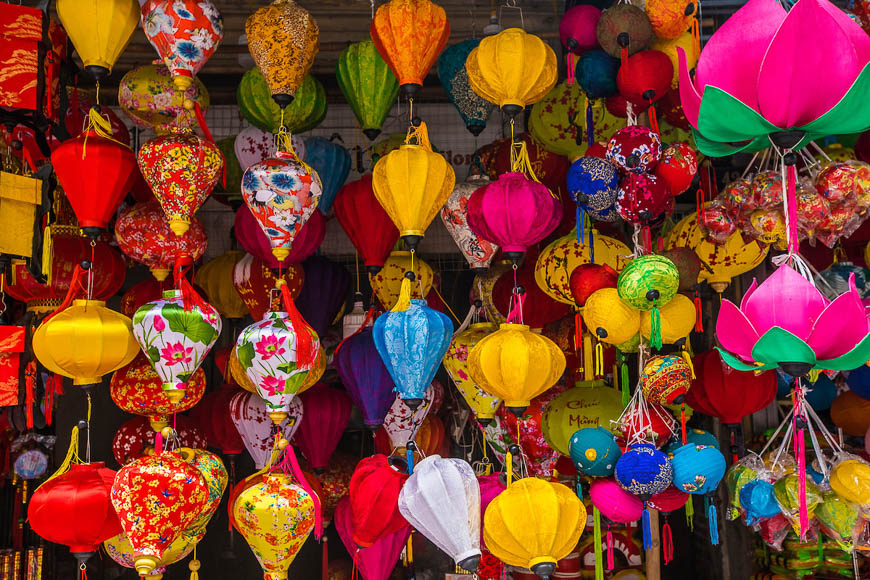
Hàng Bạc (Silver Street), where silversmiths once made money and jewellery for the palace, still houses jewellery stores and money changers. Hàng Mã is where Hanoians go to buy religious goods and festival decorations. Hàng Gai, now known as Silk Street, was named for the pinkish dye this street famously sold and used in clothing. Shops here now trade in fabrics and custom-made suits and dresses. Lãn Ông is a fragrant street filled with traditional medicines and herbs.
TIP: For many locals, the Old Quarter is considered the 'real' Hanoi. If you make friends with someone born in the Old Quarter, chances are they'll share with you fond memories of growing up on these atmospheric streets.
Encounter multiple civilizations
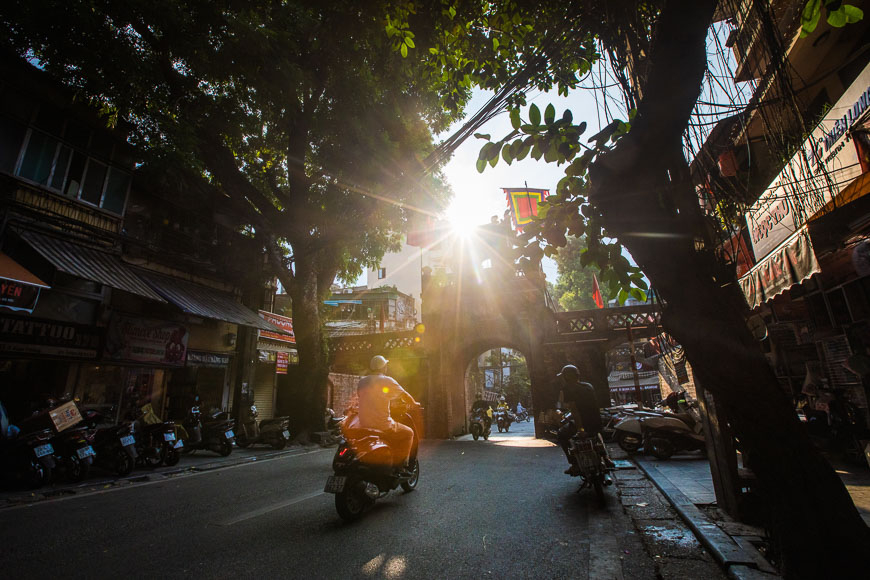
Ô Quan Chưởng Gate is the only gate left of the wall that once protected the area surrounding Thang Long Citadel, not far away. The gate as you see it was re-constructed in 1817, although originally it was built in 1749. The gate is named for the rank of a Vietnamese soldier who showed great courage in defending the gate and citadel against a French attack in 1873. Today, it's an important marker and symbol of Vietnamese spirit.
While you explore the historic centre, keep a lookout for the many pagodas built by ancient traders. The Old Quarter was partially settled by Chinese immigrants who also chose it as a location to do business. To get a glimpse into the lives of these Chinese merchant families in the past, visit Mã Mây House, a UNESCO-protected heritage home.
For a little moment of peace amid the noise, duck down the alley off Nhà Thờ for a breather in the quiet courtyard of Bà Đá Pagoda. Here you’ll find an elaborate Phật Phật statue, regarded as one of Hanoi’s four treasures.
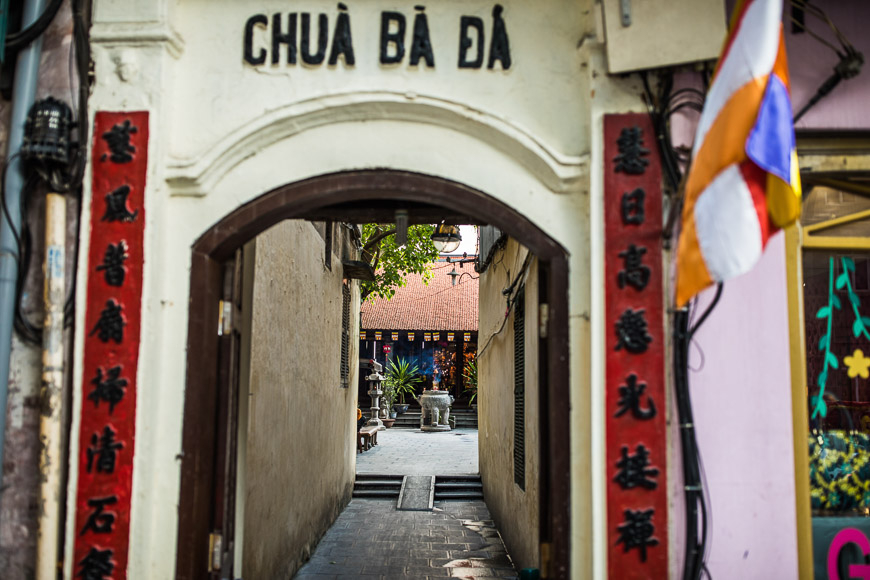
Standing proudly since 1886, St. Joseph Cathedral is a reminder of French colonial presence in Vietnam. From street level, the cathedral’s bold, neo-gothic motifs create a powerful impression above surrounding the houses and streets.
Wherever you go, you’ll have a chance to glimpse the tube houses that are typical of the Old Quarter. These houses have narrow facades, but are built deep and high, with multiple courtyards to allow light inside. Also interesting are the Soviet-influenced apartment blocks, which you can find up and down Hàng Điếu st. If you have time, you can look into the Old Quarter's most recent attraction: Train Street. Tiny cafes and stationery stores have moved into the buildings facing the tracks, and countless Instagrammers come every day to have their pictures taken with this colourful backdrop.
TIP: Stop at Phố Cổ Rooftop Cafe for a close-up look at Hanoi’s tube houses and special view of Hoàn Kiếm Lake.
Take it easy at Hoàn Kiếm lake
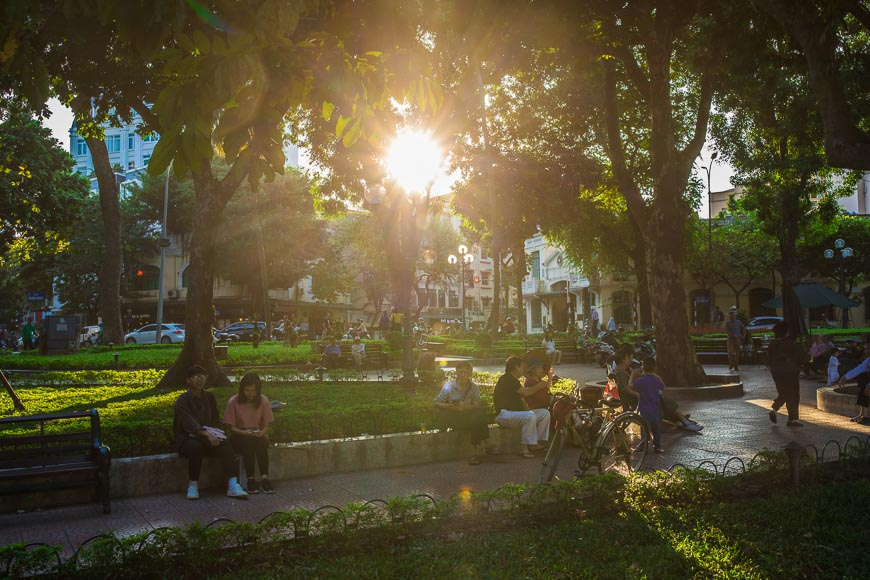
People in Hanoi have a favourite invitation that goes, “đi một vòng hồ” (let’s go for a ride around the lake.) The lake is, of course, Hoàn Kiếm. This green body of water is nestled in the core of urban Hanoi, and is an ideal hangout spot throughout the day, but especially in the early morning and late afternoons.
In the hours just before sunrise, joggers collect around the lake’s leafy banks, men and women move slowly through tai chi routines, and friends gather in circles for games of hacky-sack. In the evenings the scene is much the same. Couples join the crowd and sit on benches around the water’s edge, nibbling on green mango and sipping tea.
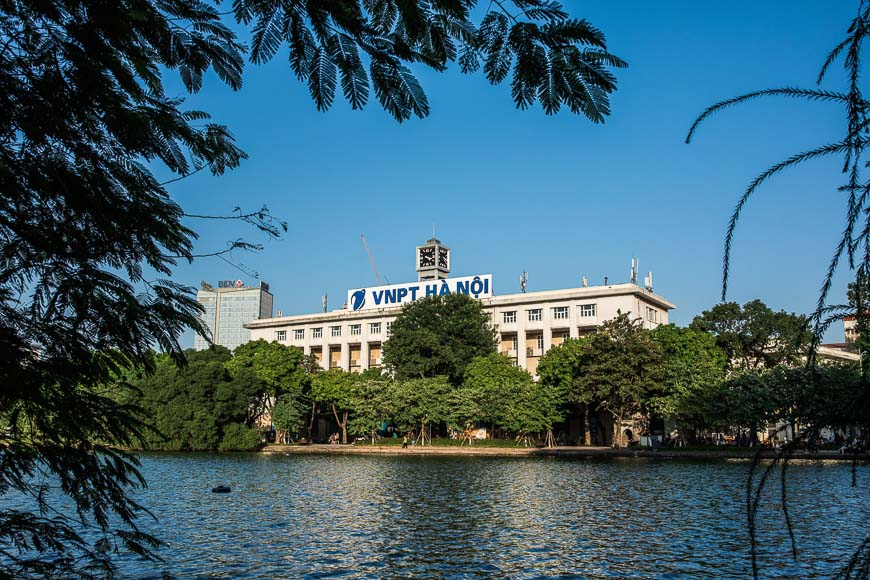
Take a stroll around the lake to encounter the famous red Húc Bridge, Ngọc Sơn Temple and iconic Turtle Tower. On weekends Hoàn Kiếm Lake is closed to vehicles and becomes a prime spot for people-watching as young and old Hanoians come together to enjoy entertainment and exercise in the open air.
TIP: Do as the locals do and buy an ice-cream cone on Tràng Tiền street. An evening walk around Hoàn Kiếm with an ice-cream in hand is an essential Hanoi experience.
Eat like a local
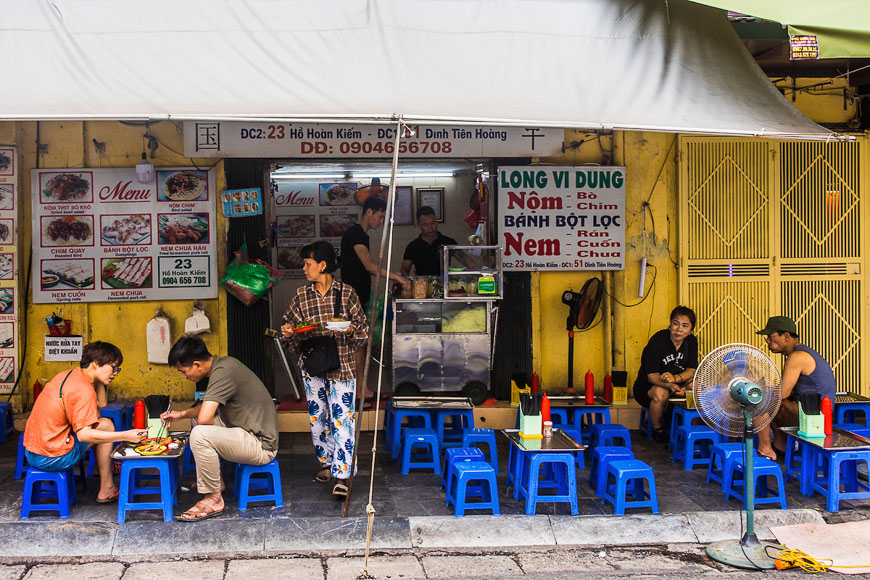
The Old Quarter is chock-full of speciality restaurants and popular stalls that have been around for years. On Hoàn Kiếm street you’ll find nộm bò khô, a dish of beef jerky and papaya topped with crunchy peanuts. There are many versions of chè (Vietnamese dessert), but locals flock to Chè Bốn Mùa restaurant for its version of lotus seed and black jelly sweet soup.
If you’re hungry, grab a bowl of bún chả at Bún Chả Hương Liên where President Obama dined, or go for a less crowded alternative at Hàng Quạt. One thing Hanoians love to do is spend hours at coffee shops, just people-watching and sharing news. Don’t leave without sampling the original egg coffee at Cafe Giang. Apart from egg coffee, another original dish from the Old Quarter dish is chả cá lá vông. The dish originated in Lá Vông restaurant and is a magical blend of fish chunks marinated in turmeric and spices, grilled and served with soft rice noodles, dill and crunchy peanuts.
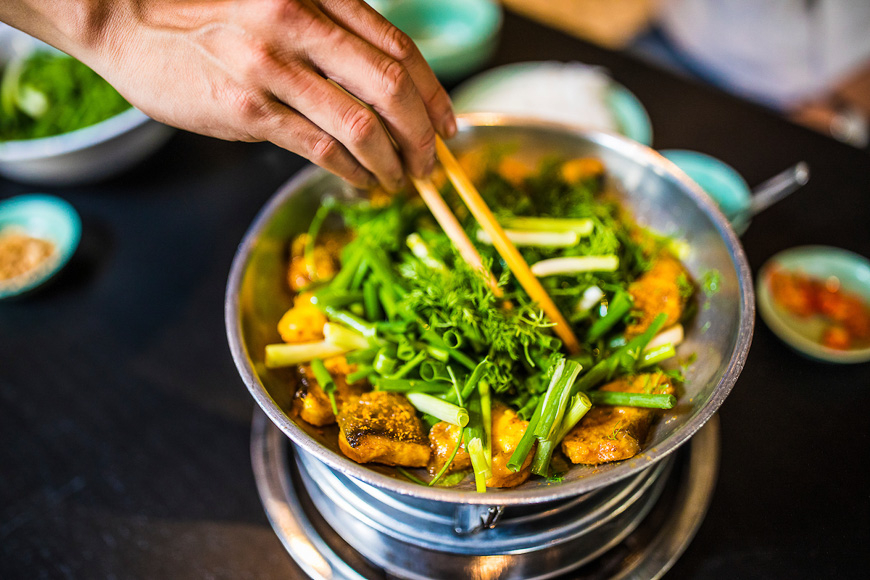
TIP: After dark on weekends, Hàng Đào street turns into a night market where you can taste unusual Hanoian street food, such as snail meatballs, grilled quail, and cured pork sausage.
Hunt for cool collectables
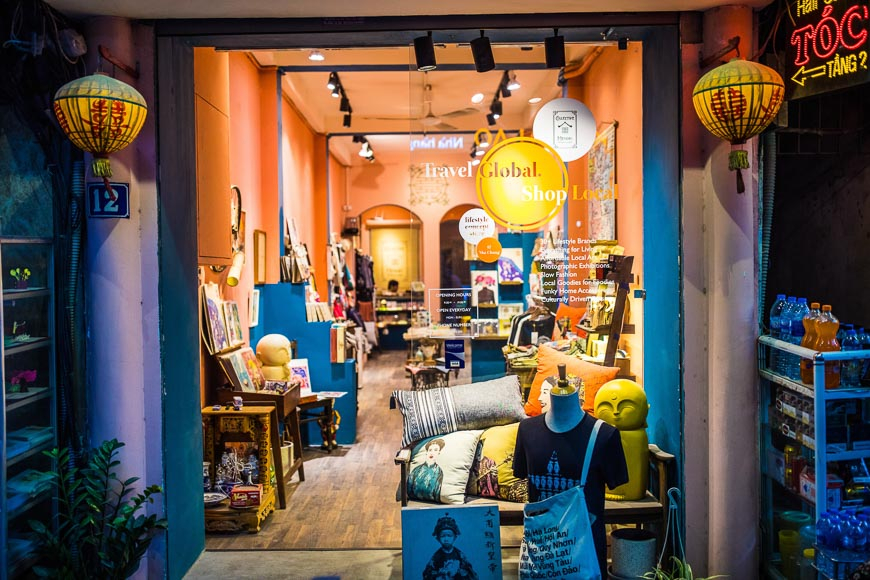
The Old Quarter may not have many malls, but shopping here happens at the street level. Hàng Dầu, Lý Quốc Sư, Tạ Hiện and Hàng Da streets are lined with stores selling clothing, bags, shoes and sportswear targeted at tourists. For a more curated selection, try Vui Studio, the minimalist boutiques on Chân Cầm street, or the small natural beauty shops on Hội Vũ street.
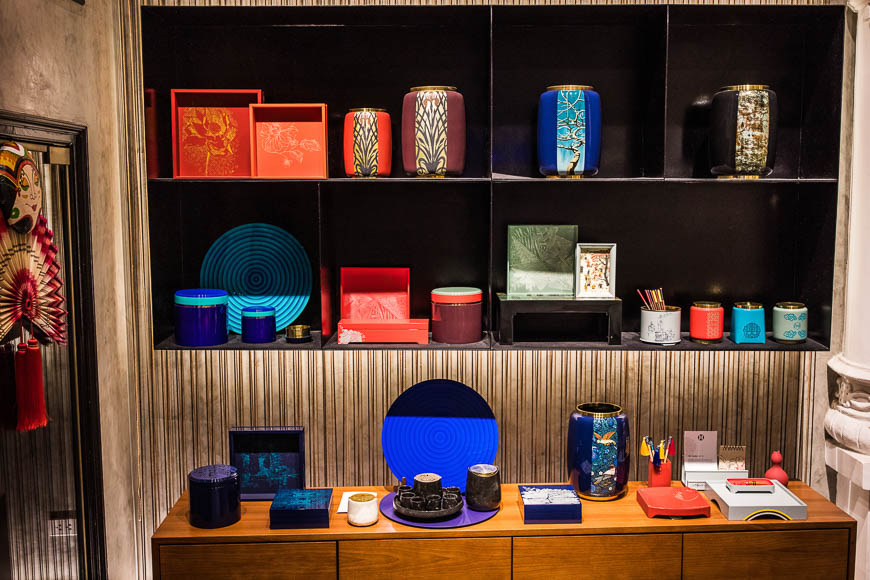
If you love embroidery and textiles, Tân Mỹ Design gathers fabulous fabrics from Vietnamese designers in their airy boutique on Hàng Gai. For beautiful Vietnamese souvenirs, visit Collective Memory on Nhà Chung. A few doors down, the Craft House Cathedral offers accessories, stationery and candles to take home. For all things lacquerware, visit Hanoia at the top of Hoan Kiem lake.
Sample Hanoian nightlife
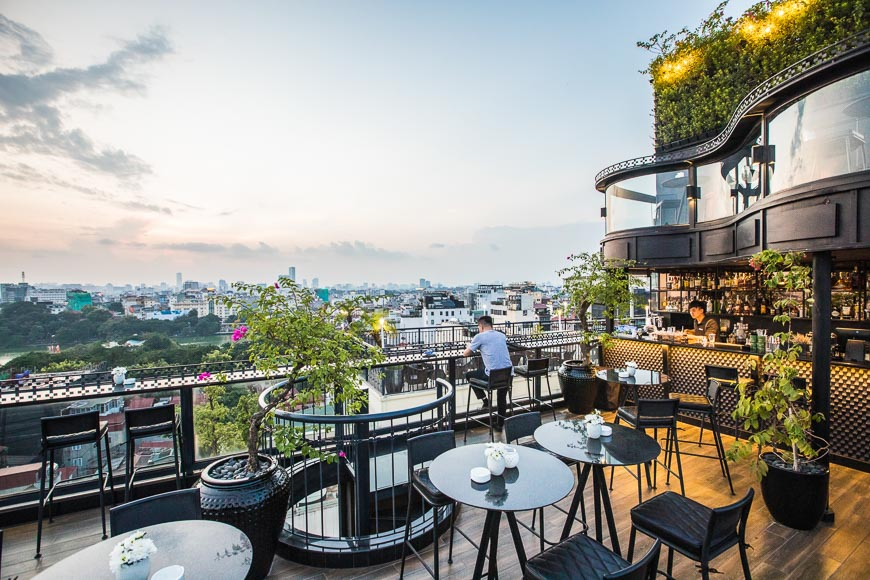
After dark, the Old Quarter puts work to the side and gets down to the serious business of having fun. There’s something to satisfy everyone within these 36 fascinating streets. Just before sundown, ride the elevator up to Diamond Sky Bar, a breezy spot with panoramic views of the Old Quarter. For a well-mixed cocktail, try the menu at Polite Co., or snag a premium gin and tonic with a view of St. Joseph Cathedral at The Mad Botanist.
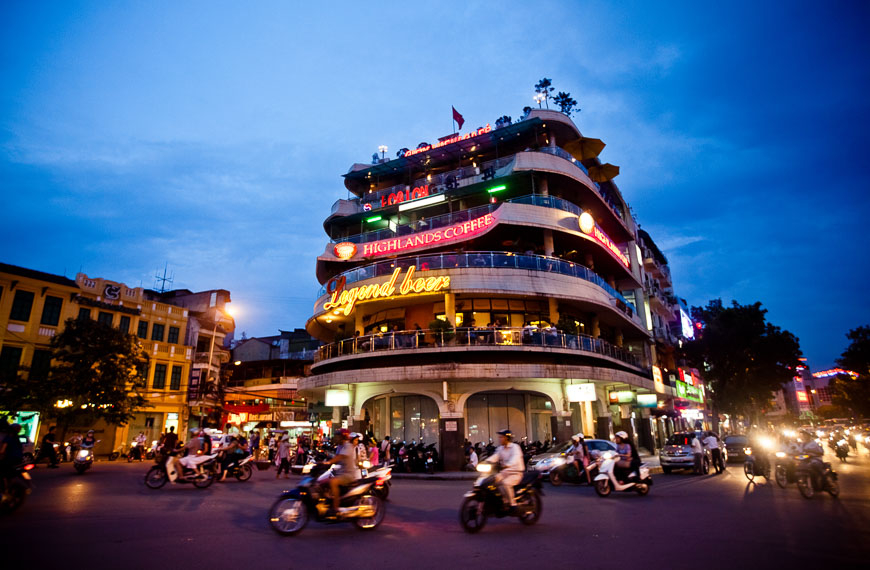
Back on the streets, Vietnamese will regularly gather to eat and drink on sidewalk corners, with long meals and countless rounds of beers going late into the night. This ‘bia hoi’ tradition is a fun way to experience local life and make new friends. The most famous beer corner in the Old Quarter is Bia Hoi Junction. The party spills out onto Tạ Hiện Street, where backpackers and locals sit on tiny plastic stools and drink fresh draft beer in the evening air. Be sure to toast your time in the Old Quarter with a cheerful shout of ‘một, hai, ba, dô!"




